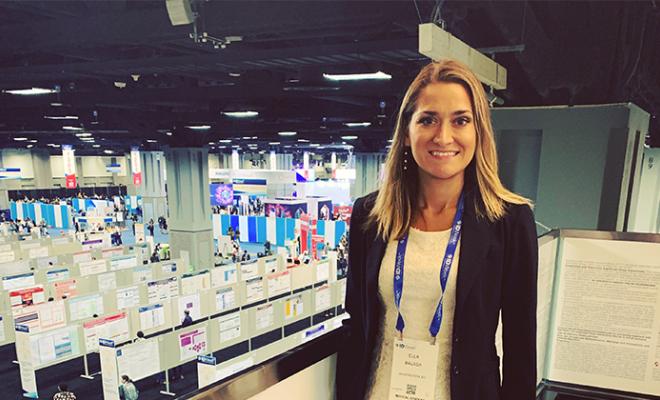As a member of the steering committee for the Infection Research Initiative, I am very excited about reaching the goal of investing at least $100 million into infection research.
The Infection Research Initiative is a robust, comprehensive program to improve our knowledge of cystic fibrosis-related infections, develop safe and effective treatments, and improve current treatments for people with CF. The committee – composed of Cystic Fibrosis Foundation staff, doctors, researchers from around the country, and four CF community members -- met in December 2021 for its annual discussion of what kinds of research have been funded in the last year and what the clinicians and patient community see as the biggest future priorities in infection.
As we approached the halfway mark of the Initiative, the steering committee took the opportunity to obtain feedback from the CF community on how well we have communicated the Foundation’s infection portfolio, the initiative’s research priorities and areas of focus, and the future of the initiative beyond 2023. To do this, the steering committee conducted a survey through Community Voice last year. An overwhelming majority of respondents said that although infections have changed for many due to Trikafta®, there is still as great a need for focusing on the development of novel therapies to treat infections. We cannot forget about the percentage of the population who do not benefit from modulators either due to mutation or side effects, as well as those with advanced lung disease for whom infections remain a daily challenge. I, for one, fall into this latter category.
The community as a whole is eager to advance our understanding of new research coming down the pipeline from phage therapy to new genetic therapies.
For this reason, we gleaned from this survey that it is a high priority to disseminate information from the Foundation about funding updates on new infection research. We want to be given more information about how far along in research development various treatments are – by what novel mechanisms are these treatments targeting bacteria and fungi to minimize or avoid antibiotic resistance? And what areas of focus are they targeting? For example, are there new methods on the horizon for determining biomarkers of an exacerbation before it even begins?
Here are a few of these updates:
- In the past two years, the Foundation has funded several studies into phage therapy, the use of specialized viruses to treat an infection.
- To address the increasing problem of antibiotic resistance, the Foundation is supporting the development of new treatments to tackle difficult-to-treat bacteria. Since the initiative began, the Foundation has funded six studies investigating treatments for Pseudomonas, five studies for nontuberculous mycobacteria (NTM), and two studies for methicillin-resistant Staphylococcus aureus (MRSA).
- Nontraditional ways to address these and other difficult-to-treat bacteria are also being explored, including the use of nitric oxide and IV gallium to treat NTM infections. Nitric oxide, a gas molecule produced by the body, plays a key role in the immune system. Researchers believe that increasing levels of nitric oxide in the body could help eliminate bacteria by breaking down biofilms, and increase lung function in people with CF. Gallium, a molecule nearly identical to iron that disrupts iron-dependent biological processes of bacteria, has already been approved for IV use for people with other illnesses.
- The Foundation is funding research into new methods for determining biomarkers of an exacerbation before it begins.
I am excited to hear that the Infection Research Initiative will continue to support infection research at the same pace as it has in the last three years. Until we have gene therapies that work with great success for everyone in our community, infection research will be a high priority. As someone who desperately needs new therapeutic options to treat the Pseudomonas infections in my lungs – but who has also been able to benefit from the use of phage therapy – I am very hopeful for the future of new therapeutics and the advancement of our researchers’ understanding of the fascinating yet perilous organisms that colonize our bodies.
Interested in sharing your story? The CF Community Blog wants to hear from you.





